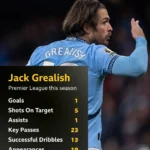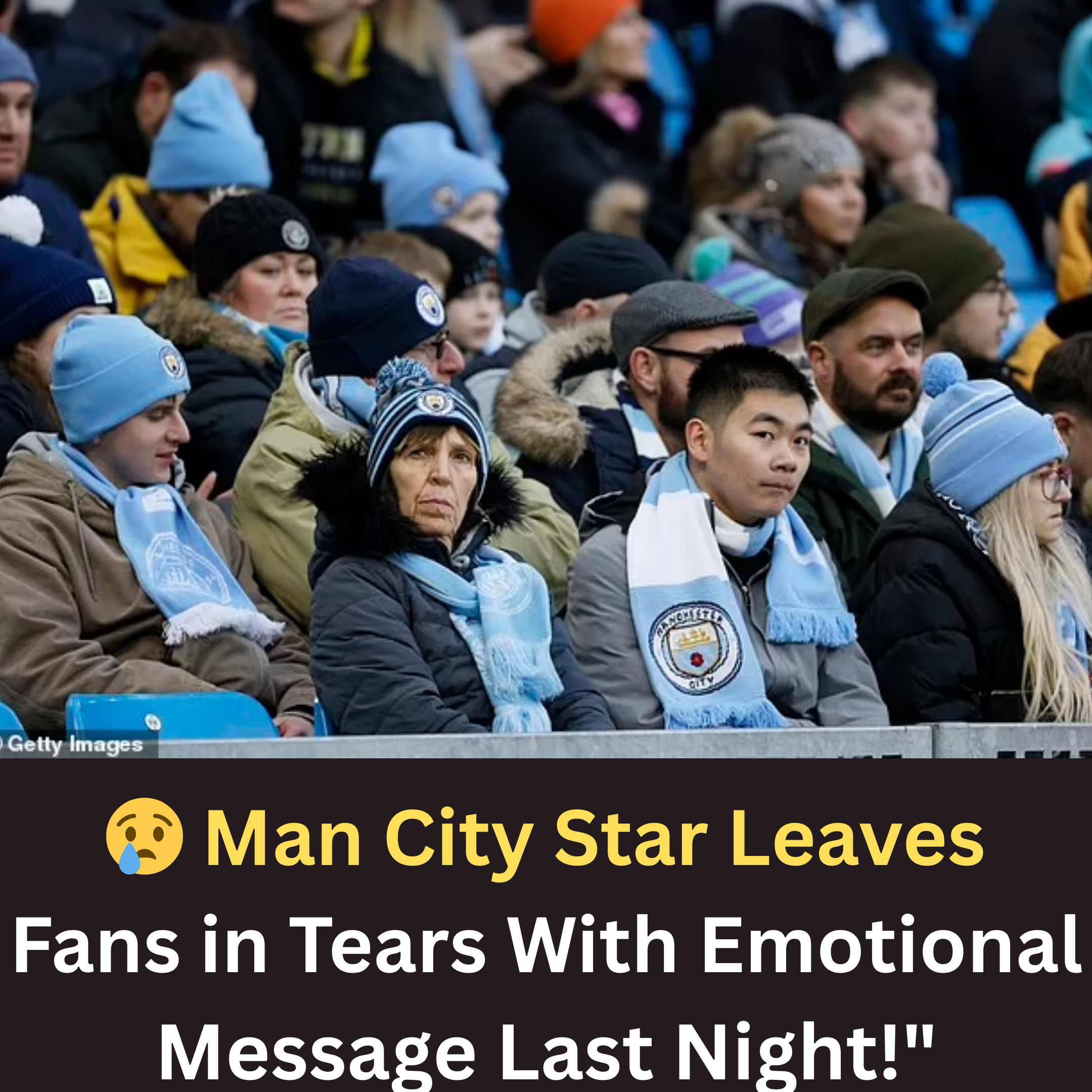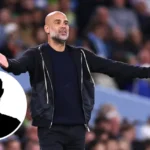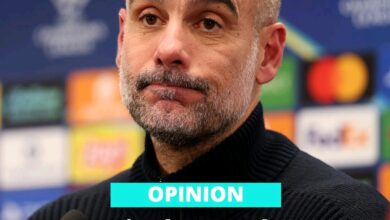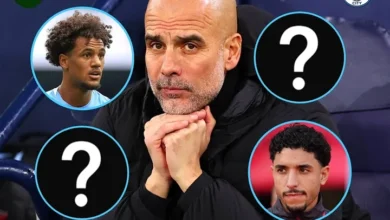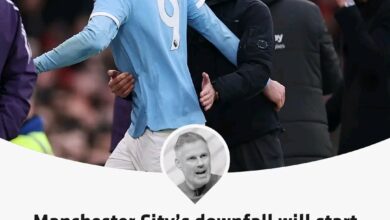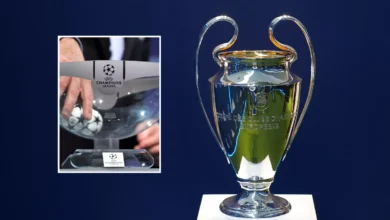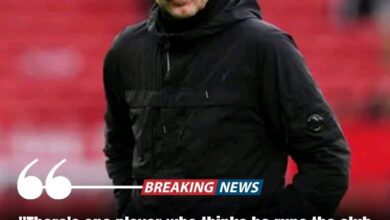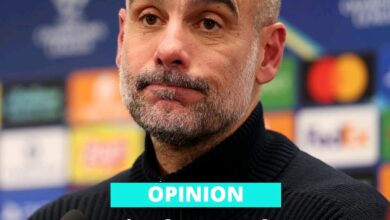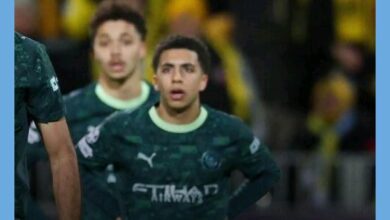Jack Grealish’s Manchester City Future Hangs in the Balance: From Treble Hero to Exit Door
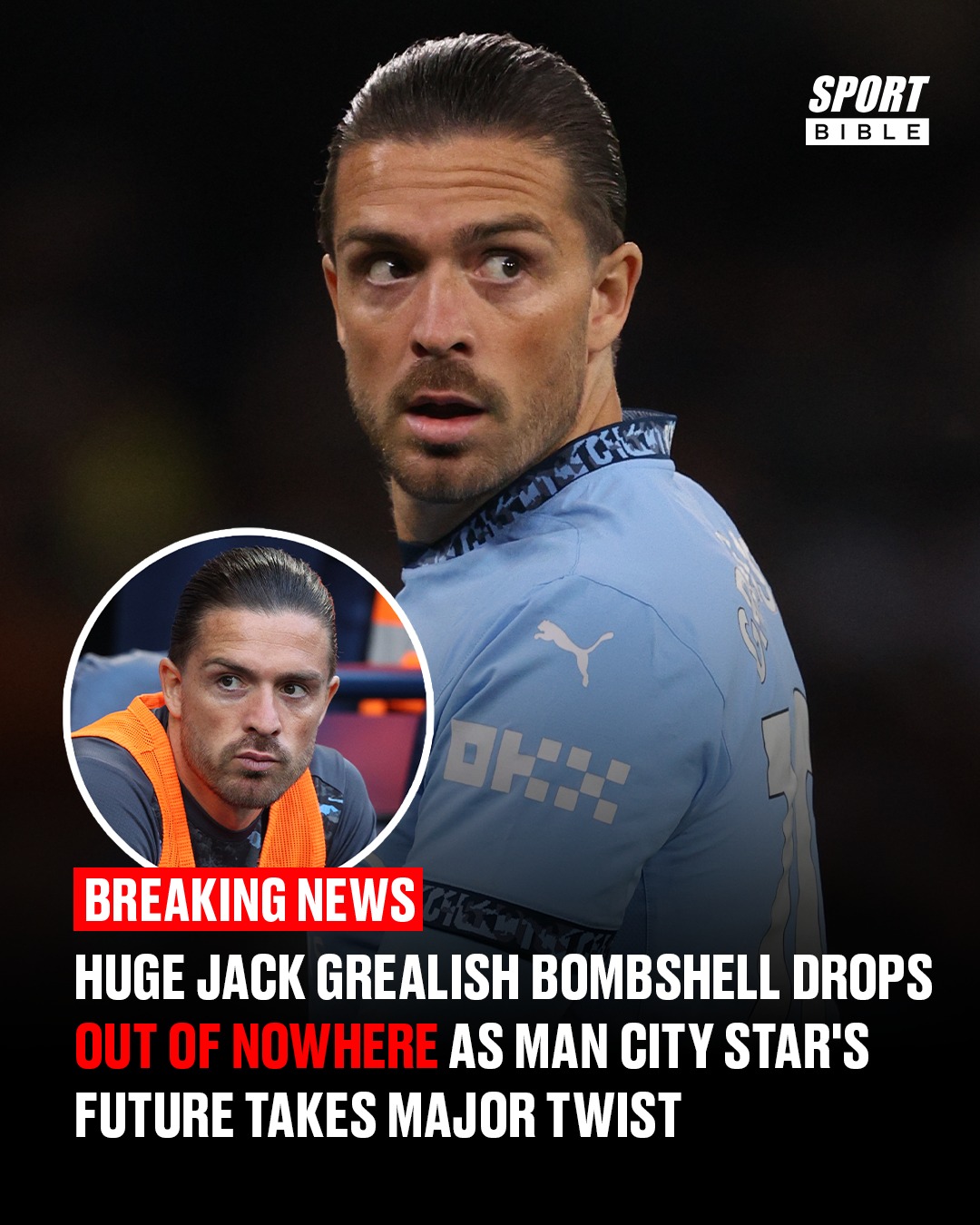
In the summer of 2021, Manchester City made headlines across the footballing world when they shattered the British transfer record to secure the services of Jack Grealish from Aston Villa for a staggering £100 million. The move represented not just a significant financial investment, but a statement of intent from Pep Guardiola’s side as they sought to add creative flair and English talent to their already formidable squad. Fast forward to 2025, and the narrative surrounding Grealish has taken a dramatic turn, with the winger now facing an uncertain future at the Etihad Stadium.
The latest developments suggest that Grealish’s time at Manchester City may be drawing to a close, with reports indicating that he will be excluded from the club’s FIFA Club World Cup squad – a decision that speaks volumes about his current standing within Guardiola’s plans. This exclusion represents perhaps the clearest indication yet that the England international’s future lies away from Manchester, marking a dramatic fall from grace for a player who was once considered integral to City’s success.
The Golden Period: Treble Success and Early Promise
To understand the magnitude of Grealish’s current predicament, it’s essential to reflect on the heights he once reached at Manchester City. The 2022-23 season marked the pinnacle of his career to date, as he played a crucial role in City’s historic treble triumph. His performances throughout that campaign demonstrated exactly why Guardiola had been so determined to bring him to Manchester, showcasing the unique blend of creativity, pace, and technical ability that had made him such a standout performer at Aston Villa.
During that memorable season, Grealish’s contribution extended far beyond mere statistics. His ability to retain possession under pressure, create space for teammates, and provide moments of individual brilliance proved invaluable as City navigated their way through three separate competitions. The sight of Grealish celebrating with the Premier League, FA Cup, and Champions League trophies seemed to validate the enormous investment made in his services, suggesting that he had successfully adapted to Guardiola’s demanding tactical system.
However, even during this period of success, there were subtle signs that Grealish’s relationship with his manager was not without its complexities. Guardiola’s public comments about the player’s development and adaptation to his tactical requirements hinted at an ongoing process of adjustment that would ultimately prove more challenging than initially anticipated.
The Decline: Reduced Role and Mounting Pressure
The 2023-24 season marked the beginning of Grealish’s decline in importance at Manchester City. Despite his contributions to the treble success, the winger found himself increasingly marginalized, making just seven Premier League starts throughout the entire campaign. This dramatic reduction in playing time raised serious questions about his future at the club and highlighted the fierce competition for places in Guardiola’s squad.
Several factors contributed to Grealish’s reduced role. The emergence of other attacking options, combined with Guardiola’s tactical evolution and the manager’s exacting standards, meant that consistent performances were required to maintain a place in the starting eleven. Grealish’s occasional struggles to meet these demands, coupled with injury concerns and the natural rotation policy employed by City, resulted in a frustrating campaign for the England international.
The psychological impact of this reduced role cannot be understated. For a player accustomed to being the focal point of his team’s attacking play during his time at Aston Villa, adapting to a more peripheral role at City proved challenging. The pressure of justifying his hefty transfer fee, combined with the intense scrutiny that comes with playing for one of the world’s elite clubs, appeared to weigh heavily on Grealish’s shoulders.
Guardiola’s Honest Assessment: A Manager’s Dilemma
Pep Guardiola’s recent comments regarding Grealish’s situation have been refreshingly honest, providing insight into the complex relationship between manager and player. The Spanish tactician’s acknowledgment that Grealish “has to play football every three days” and that “it didn’t happen this season and last season either” represents a frank assessment of the current reality.
Guardiola’s suggestion that Grealish needs regular football “with us or another place” demonstrates the manager’s pragmatic approach to squad management. Despite his personal investment in bringing Grealish to Manchester City, Guardiola appears willing to accept that the partnership may not be working as intended. His comments about fighting for Grealish to join the club and wanting him to stay reveal the complexity of the situation – a manager who values the player’s abilities but recognizes the practical limitations of the current arrangement.
The decision to leave Grealish out of the matchday squad for the final game against Fulham, followed by his expected exclusion from the Club World Cup squad, suggests that Guardiola has already begun the process of moving on from the England international. This represents a significant shift from the manager who once viewed Grealish as essential to his tactical plans.
The Club World Cup Exclusion: A Clear Message
Perhaps the most telling indicator of Grealish’s current status at Manchester City is his expected exclusion from the FIFA Club World Cup squad. This tournament, featuring 32 teams competing in the United States, represents an opportunity for players to showcase their abilities on a global stage. For Grealish to be omitted from such a prestigious competition sends a clear message about his standing within the squad hierarchy.
The timing of this exclusion is particularly significant. With Manchester City facing Wydad AC, Al Ain, and Juventus in Group G, the tournament presents an ideal opportunity for fringe players to stake their claim for regular first-team football. Grealish’s absence from this competition effectively removes any chance he might have had to force his way back into Guardiola’s long-term plans.
From a practical standpoint, the decision also makes sense from a transfer perspective. The Club World Cup could potentially last a month, and Grealish’s participation would complicate any potential transfer negotiations during a crucial period of the summer window. By excluding him from the squad, City have effectively cleared the path for his departure while avoiding any unnecessary complications.
The Financial Implications: A Complex Transfer Puzzle
Any potential departure for Jack Grealish will be complicated by the financial implications of his current contract. With two years remaining on a deal reportedly worth £300,000 per week, Grealish represents a significant financial commitment for Manchester City. The club’s willingness to let him leave suggests they are prepared to take a substantial financial hit to resolve the situation.
The original £100 million transfer fee adds another layer of complexity to any potential deal. While City may be unlikely to recoup their full investment, the need to balance the books and comply with Financial Fair Play regulations means that any transfer fee received would be welcome. The challenge lies in finding a club willing and able to match Grealish’s salary expectations while also paying a reasonable transfer fee.
Several potential solutions have been suggested, including the possibility of a loan deal that could help Grealish rebuild his reputation while reducing City’s financial burden. Such an arrangement could benefit all parties, allowing Grealish to secure regular playing time while giving City time to assess their long-term options.
International Implications: England Career Under Threat
Grealish’s reduced role at Manchester City has had a direct impact on his England career, with the winger struggling to maintain his place in the national team setup. His absence from recent squads highlights the importance of regular club football for international recognition, particularly under new England manager Thomas Tuchel.
The German coach’s appointment has added another dimension to Grealish’s situation, as he will be eager to impress a manager who may have different ideas about the type of players he wants in his squad. Regular playing time at club level will be essential if Grealish is to force his way back into international contention, making a move away from City increasingly attractive from a career perspective.
The upcoming World Cup cycle represents a crucial period for English football, and Grealish’s exclusion from the national team setup serves as a stark reminder of how quickly fortunes can change in professional football. His desire to represent his country at the highest level may well be the decisive factor in any decision about his club future.
Potential Destinations: Exploring the Options
As speculation mounts regarding Grealish’s potential departure from Manchester City, several possible destinations have emerged. Premier League clubs with the financial resources to accommodate his salary demands represent the most obvious options, though the competitive nature of England’s top flight means that regular starting positions cannot be guaranteed.
European clubs seeking to add Premier League experience and creative flair to their squads may also be interested, though the financial implications of such a move could prove prohibitive for many potential suitors. The possibility of a return to Aston Villa, though romantically appealing, seems unlikely given the financial realities involved.
Interestingly, former Manchester United striker Dwight Yorke has suggested that Major League Soccer could represent an attractive option for Grealish. With high-profile endorsement deals with brands like Gucci, Bose, and Pepsi already in place, a move to MLS could allow Grealish to further develop his personal brand while securing regular playing time in a less pressurized environment.
The American market’s appreciation for creative, technically gifted players could make MLS an ideal destination for Grealish to rebuild his confidence and rediscover his best form. The league’s growing profile and commercial opportunities might also align with his off-field interests and long-term career planning.
The Broader Context: Squad Evolution at Manchester City
Grealish’s situation must be viewed within the broader context of Manchester City’s ongoing squad evolution. Guardiola’s team is in a constant state of refinement, with players regularly coming and going as the manager seeks to maintain the club’s competitive edge. The emergence of younger talents and the club’s commitment to refreshing their squad means that even high-profile signings are not guaranteed long-term security.
The arrival of new players and the development of existing squad members has created increased competition for places, making it increasingly difficult for Grealish to secure the regular playing time he needs. This natural evolution of the squad, combined with Guardiola’s tactical adjustments, has contributed to the winger’s current predicament.
City’s recent injury to midfielder Mateo Kovacic, who will miss the Club World Cup following Achilles surgery, demonstrates the unpredictable nature of squad management. However, even this setback has not been sufficient to secure Grealish’s inclusion in the tournament squad, further emphasizing his peripheral status within the team.
The Human Element: Personal and Professional Challenges
Behind the headlines and speculation lies a human story of a talented footballer struggling to find his place at one of the world’s elite clubs. Grealish’s journey from Villa Park hero to Manchester City squad player represents one of the more challenging transitions in modern football, highlighting the difficulties faced by players adapting to new environments and expectations.
The pressure of justifying a £100 million price tag, combined with the intense scrutiny of playing for Manchester City, has undoubtedly taken its toll on Grealish’s confidence and form. The mental resilience required to overcome such challenges is immense, and credit must be given to the player for his continued professionalism despite the difficult circumstances.
The support of family, friends, and advisors will be crucial as Grealish navigates this challenging period in his career. The decisions made in the coming months could well define the trajectory of his remaining years as a professional footballer, making the choice of his next destination absolutely critical.
Looking Ahead: Critical Decisions Await
As the summer transfer window approaches, Jack Grealish faces perhaps the most important decision of his professional career. The choice between fighting for his place at Manchester City or seeking a fresh start elsewhere will have profound implications for both his club and international prospects.
The upcoming weeks are likely to bring intensive discussions between Grealish, his representatives, and Manchester City officials as all parties seek to find a resolution that serves everyone’s interests. The complexity of the situation, involving significant financial considerations and multiple stakeholders, means that any solution will require careful negotiation and compromise.
For Manchester City, the situation represents an opportunity to reshape their squad while potentially recouping some of their investment in Grealish. The club’s reported interest in players like Tijjani Reijnders and Rayan Cherki suggests that they are already planning for life without the England international.
Conclusion: The End of an Era?
Jack Grealish’s time at Manchester City appears to be drawing to a close, marking the end of what many hoped would be a long and successful partnership. Despite moments of brilliance and his contribution to the club’s treble success, the winger has struggled to establish himself as a consistent starter under Pep Guardiola’s demanding regime.
The expected exclusion from the Club World Cup squad represents a watershed moment in this saga, providing the clearest indication yet that both player and club are ready to move on. While the financial implications of any departure will be significant, the need for Grealish to secure regular playing time and rebuild his confidence makes a transfer increasingly likely.
As one chapter closes, another is set to begin for Jack Grealish. The coming months will reveal whether he can rediscover the form that made him one of English football’s most exciting talents, albeit potentially in different surroundings. For Manchester City, the challenge lies in ensuring that their significant investment in the player is not viewed as a complete loss, while also moving forward with their squad development plans.
The story of Jack Grealish at Manchester City serves as a reminder of the unpredictable nature of football, where even the most promising partnerships can fail to reach their full potential. As the summer transfer window beckons, all eyes will be on how this particular chapter in Premier League history reaches its conclusion.


